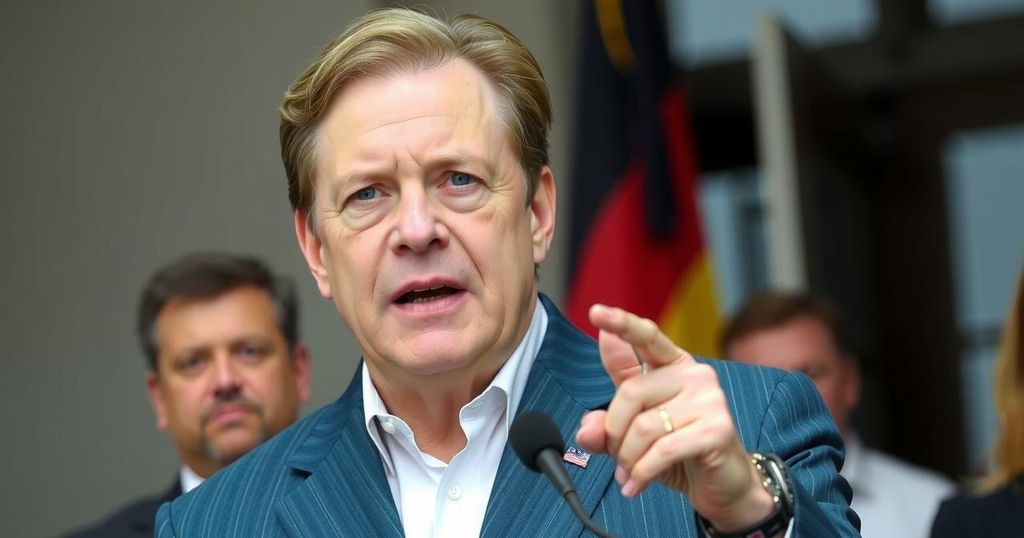The German government has responded to Elon Musk’s endorsement of the far-right AfD party, which has sparked controversy leading to the resignation of a newspaper editor. Government spokesperson Christiane Hoffmann acknowledged Musk’s attempts to sway the election. The AfD, recognized as extremist, faces a challenging path to legitimacy in the political arena, particularly following the collapse of the current government and the upcoming early elections.
In recent developments, the German government has sought to mitigate the impact of Elon Musk’s endorsement of the far-right Alternative for Germany (AfD) party as the nation approaches its general elections. Musk’s opinion piece published in a significant newspaper has ignited controversy and resulted in the resignation of its opinion editor. Government spokesperson Christiane Hoffmann remarked on the situation, acknowledging Musk’s attempts to influence the election while underscoring that the AfD is under surveillance for extremist tendencies. Despite Musk’s assertions supporting the AfD as a potential savior for Germany, the party remains critically challenged in gaining acceptance across the political spectrum, limiting its leader’s chances for the chancellorship.
The German political landscape faces turmoil following the collapse of Chancellor Olaf Scholz’s coalition government in December 2024, prompting an early general election scheduled for February 23. In this context, Elon Musk’s foray into the election discourse through his support of the AfD has drawn intense scrutiny. The AfD, notorious for its far-right ideology and being monitored by domestic intelligence, is poised at a precarious junction in Germany’s electoral framework as public sentiments and political allegiances continue to shift. Musk’s commentary not only promotes the AfD as a beacon of hope but also challenges prevailing narratives about the party’s classification as extremist. This commentary raises critical questions regarding freedom of speech, particularly the role of foreign figures in national politics.
In summary, Elon Musk’s recent endorsement of the AfD has triggered significant backlash within Germany, prompting the government to respond cautiously to preserve the integrity of the upcoming elections. Musk’s involvement has sparked debates on free speech and the appropriateness of his influence in a context where the far-right party is under scrutiny for extremist connections. The overarching implications for the AfD’s political ambitions and its reception by other parties remain uncertain as Germany navigates this politically charged climate.
Original Source: apnews.com






